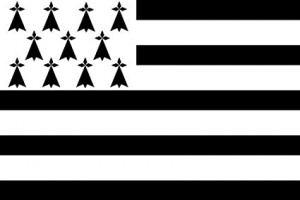Language/Breton/Grammar/How-to-Use-Have
Hi Breton learners! 😊
In this lesson, we will learn how to use "have" in Breton.
Don't hesitate to look into these other pages after completing this lesson: Conditional Mood & Adjectives.
What is "Have" in Breton?[edit | edit source]
"Have" is a verb that indicates possession or a state of being. It is commonly used in Breton to express possession or present perfect tense. In Breton, "have" has two different translations: "kalz" and "wisk".
"Kalz" is used when referring to the possession of a quantity or a number, while "wisk" is used when referring to the possession of something tangible or intangible.
Let's take a look at some examples below to better understand this concept.
| Breton | Pronunciation | English |
|---|---|---|
| Kalz a zen !! [kɑlts a zɛn] !! I have a lot | ||
| C'hoariet hon eus !! [xwarjɛt hon œs] !! We have played | ||
| Wisk a zo c'hwi !! [wisg a zo xwi] !! You have a shirt |
As you can see in the examples above, "Kalz" and "wisk" are used depending on what is being possessed or referred to.
Breton Grammar Rules for "Have"[edit | edit source]
In Breton, "have" can be used in the present perfect tense by conjugating the verb "bezañ". This tense is used to describe an action that started in the past and continues into the present.
Let's take a closer look at the present perfect tense on "bezañ" using examples. The table below shows how the verb is conjugated with "kalz" and "wisk".
| Breton | Pronunciation | English |
|---|---|---|
| Me zo kalz !! [mɛ zɔ kɑlts] !! I have a lot | ||
| Te zo kalz !! [tɛ zɔ kɑlts] !! You have a lot | ||
| Emañ he c'horf wisk !! [ɛmɑ̃n he xoːrf wisg] !! He/She has a body | ||
| Hon eus anezho kalz !! [hɔn œs anɛzo kɑlts] !! We have a lot of them |
The present perfect tense is used when describing something that started in the past and is still continuing into the present. For example, if you want to say "I have been studying Breton for 2 hours", you would say "Me zo kalz studjet Brezhoneg evit daou eur".
In Breton, the present perfect tense on "bezañ" is also used to describe a past event that has relevance or impact on the present. For example, if you went to a concert last night and you want to describe the experience, you would say "Setu va dañsal, emañ me o vont war dachenn ar c'hentañ gwech evit ar bloavezh".
The Importance of Using "Have" in Breton[edit | edit source]
Using "have" properly in Breton is important to convey possession and present perfect tense accurately. It adds depth to your sentences and makes them more nuanced.
To improve your Breton Grammar, you can also use the Polyglot Club website. Find native speakers and ask them any questions!
For practice, let's have a conversation below.
- Person 1: Me zo kalz studjet Brezhoneg evit daou eur. ([I have been studying Breton for 2 hours.])
- Person 2: Mat eo. Wiskañ a ran ur mezvezh. ([That's good. I have a month of experience.])
- Person 1: Te zo kalz plijus dit ar boderezh-se? ([Do you enjoy this hobby?])
- Person 2: Yeh, kalz a blijadur emaon o labourat war an aerded betek ARS. ([Yes, I have a lot of fun working on the garden until ARS.])
Conclusion[edit | edit source]
In this lesson, we learned how to use "have" in Breton. We covered the different translations for "have" and how to correctly use the present perfect tense with "bezañ".
Using "have" properly is important to convey possession and present perfect tense accurately. Practice speaking and writing in Breton to improve your fluency and to use "have" naturally in your sentences.
➡ If you have any questions, please ask them in the comments section below.
➡ Feel free to edit this wiki page if you think it can be improved. 😎
Well done on mastering this lesson! Don't miss these related pages to expand your knowledge: How to Use Be & Pronouns.
Videos[edit | edit source]
How to Make Elegant, Buttery Gâteau Breton - YouTube[edit | edit source]
Other Lessons[edit | edit source]
- Future Tense
- Adjectives
- Gender
- Give your Opinion
- Plurals
- Negation
- Personal Pronouns
- Pronouns
- Questions
Sources[edit | edit source]
- Breton grammar - Wikipedia
- Breton Grammar: Hemon, Roparz, Everson, Michael ...
- Breton language - Wikipedia

